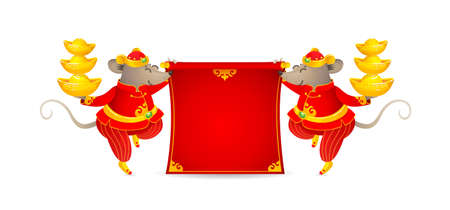A Cultural Glimpse: Introducing Mirrors in Feng Shui
Step into a quintessentially British home—perhaps a Victorian terrace in London or a converted barn nestled in the Cotswolds—and you’ll likely notice at least one beautifully framed mirror adorning the hallway or above a mantelpiece. Yet, beyond their practical and aesthetic value, mirrors have long held a deeper, almost mystical significance across cultures. In traditional Feng Shui, an ancient Chinese art form centred on harmonising energy within spaces, mirrors are powerful tools said to channel and redirect the flow of chi—the vital life force. For centuries, mirrors have been revered not merely as decorative objects but as gateways between worlds, capable of deflecting negative energy or amplifying positive intentions.
Historically, the use of mirrors in Feng Shui was deeply intertwined with spiritual beliefs and daily rituals. Ancient practitioners would place polished bronze or obsidian mirrors at strategic points to protect homes from misfortune or to invite prosperity. Over time, these ideas have travelled far beyond China’s borders, weaving themselves into the fabric of modern interiors. As more British homeowners become attuned to wellbeing and holistic living, there is a growing curiosity about how these age-old practices can be adapted to contemporary lifestyles. The traditional principles of Feng Shui now find fresh relevance—from urban flats in Manchester to seaside cottages in Cornwall—as people seek not just stylish decor but also spaces that nurture harmony and positive energy.
2. The Energy Dance: Understanding Qi and Reflection
In the mystical art of Feng Shui, mirrors are much more than decorative features; they are powerful conductors of energy—Qi—that shape the soul of your living space. British homes, rich in history and character, possess a distinct atmosphere where every nook and cranny tells a story. When we blend this ancient Eastern wisdom with the heart of British interiors, an enchanting dance between reflection and energy unfolds.
Qi, or vital life force, is believed to flow through our homes just as the Thames meanders through London—sometimes swiftly, sometimes gently—but always shaping the environment around it. Mirrors act as both amplifiers and redirection tools for this energy, either enhancing positive Qi or diffusing stagnant pools that linger in dim corners or under-used hallways so typical in Victorian terraces or Edwardian semis.
The following table illustrates how traditional Feng Shui principles adapt to common British home features:
| British Home Feature | Mirror Placement Tip | Qi Effect |
|---|---|---|
| Bay Window | Place mirror adjacent (not directly opposite) to draw outdoor light deeper inside | Invites fresh Qi, brightens room |
| Narrow Hallway | Hang a long mirror along one wall (not at end) | Encourages smooth Qi flow, reduces congestion |
| Fireplace as Focal Point | Avoid mirror above fireplace; instead place on side wall | Balances fire element, prevents excess energy dispersal |
| Cottage Beams & Low Ceilings | Use vertical mirrors to visually lift ceiling height | Promotes upward movement of Qi, less heaviness |
| Front Door Facing Stairs | Avoid direct mirror alignment; place to side if needed | Prevents rapid loss of incoming Qi, encourages gentle circulation |
This delicate interplay between tradition and context is essential. In a British setting where the past whispers from every cornice and hearthstone, mirrors become bridges—not only reflecting light but also harmonising the invisible energies that shape our day-to-day experiences. As you position each mirror in your home, imagine the Qi swirling like morning mist over the moors—guided by ancient hands yet attuned to your personal rhythm.

3. Mirrors and Space: Shaping Light, Mood, and Perception
Mirrors have long held an enchanting role in British homes, from the ornate halls of Victorian terraces to the sleek interiors of modern flats. In the context of traditional Feng Shui, mirrors are far more than decorative flourishes—they serve as powerful tools for amplifying light, expanding perceived space, and uplifting the mood within a home. Imagine stepping into a classic London townhouse: a well-placed mirror near a bay window catches the rare British sunlight, casting it deeper into a drawing room adorned with period features. This isn’t just practical—its alchemy, transforming gloomy corners into vibrant sanctuaries and inviting positive energy to linger. For those dwelling in cosy city flats or charming country cottages, mirrors can be thoughtfully positioned to create a sense of spaciousness where square footage is limited. According to Feng Shui principles, mirrors reflect not only physical light but also the energetic flow—what practitioners call “chi.” By harnessing this reflective magic, you can direct good fortune and harmony throughout your living space. However, it’s important to avoid placing mirrors directly opposite doors or windows where they might bounce beneficial energy right back outside; instead, angle them to capture gentle daylight or frame beautiful garden views. In every British home—be it a bustling urban abode or a tranquil rural retreat—mirrors are subtle storytellers. They transform everyday scenes by doubling bouquets on mantelpieces, reflecting family gatherings, and capturing glimpses of cherished art. Through mindful placement, mirrors can help craft atmospheres that feel open yet intimate, bright yet calming—a true reflection of both traditional wisdom and contemporary British living.
4. Practical Placement: Do’s and Don’ts for British Interiors
When weaving the ancient wisdom of Feng Shui into the distinct tapestry of a modern British home, mirrors become more than mere decorative objects. Their placement can either invite positive energy or disrupt the delicate harmony within your living space. Understanding the nuances of British architecture — from Victorian terraces to contemporary flats — is essential for harnessing the full potential of mirrors. Below, we offer a practical guide tailored to common British house layouts, ensuring your home radiates balance and wellbeing.
Do’s: Inviting Harmony with Mirrors
- Maximise Natural Light: In many British homes where windows may be small or rooms north-facing, place mirrors opposite or adjacent to windows. This amplifies daylight, creating a brighter and more uplifting environment.
- Enhance Spaciousness: For narrow hallways or compact lounges typical in Edwardian houses, a well-placed mirror along one wall can visually expand the space and soften any sense of confinement.
- Reflect Beauty: Position mirrors so they reflect pleasant views — such as a garden through French doors or a cherished piece of art — doubling their auspicious influence in your home.
Don’ts: Common Mirror Missteps
- Avoid Facing Front Doors: In traditional Feng Shui, placing a mirror directly opposite your main entrance is believed to bounce good energy right back out. Instead, angle mirrors to gently guide positive qi into your hallway.
- No Mirrors Opposite Beds: Especially in smaller British bedrooms, avoid placing mirrors directly facing the bed. This can disrupt restful sleep and create an unsettled atmosphere.
- Mind the Fireplace: While fireplaces are central features in many UK homes, avoid hanging mirrors directly above if they reflect clutter or sharp corners — this can inadvertently amplify disharmony.
Mirror Placement Guide for Typical British Rooms
| Room Type | Ideal Mirror Placement | Avoid These Spots |
|---|---|---|
| Lounge / Living Room | Opposite window or feature wall; side wall to widen space | Facing front door; reflecting TV screens or cluttered shelves |
| Main Entrance / Hallway | Side wall to draw light down corridor; at end for depth | Directly opposite front door; low height mirrors below waist level |
| Bedroom | On wardrobe doors (not facing bed); beside dressing table | Directly facing bed; ceiling-mounted mirrors |
| Dining Room | Reflecting dining table to double abundance; angled for garden view | Catching bathroom doors; reflecting empty chairs constantly |
| Bathroom | Above sink; opposite frosted window for privacy and light boost | Facing toilet; reflecting bathroom door directly |
Sensitive Touches for Historic Homes
If you’re lucky enough to call a period property home — perhaps a Georgian townhouse with ornate cornicing or a cottage with low beams — choose frames that echo original details and position mirrors where they complement, not compete with, existing features. Respect the soul of your space while inviting new energy in.
5. Common Misconceptions: Navigating British Beliefs
When it comes to mirrors, the British Isles are steeped in their own rich tapestry of myths and superstitions—many of which can seem at odds with traditional Feng Shui wisdom. For example, there’s the well-known belief that breaking a mirror brings seven years of bad luck, or the notion that mirrors should be covered during times of mourning to prevent souls from becoming trapped. These stories have deep roots in British folklore, echoing through centuries-old cottages and grand Victorian townhouses alike. At first glance, these local customs may appear incompatible with the principles of Feng Shui, which often encourages strategic mirror placement to harness positive energy and enhance space.
But as we weave together these two worlds, it becomes clear that many misconceptions stem from misinterpretation. A common myth is that all mirrors in Feng Shui must be positioned facing doors or windows to attract prosperity—yet, this isn’t always advisable, nor universally beneficial. In truth, Feng Shui calls for mindful placement: a mirror opposite a door may indeed reflect energy out rather than draw it in, potentially dispersing opportunities instead of inviting them home. Similarly, while some UK households avoid placing mirrors in bedrooms due to old tales of disturbed sleep and unsettled spirits, Feng Shui also cautions against mirrors facing beds—not because of hauntings, but due to the way reflected energy can disrupt restfulness.
The art lies in reconciling these traditions with intention and sensitivity. Rather than dismissing one set of beliefs for another, British homeowners can thoughtfully blend both perspectives. For instance, respecting inherited superstitions about mirror care while also applying Feng Shui’s guidance on light and energy flow creates a harmonious household atmosphere. In practice, this might mean avoiding cracked or clouded mirrors (as both traditions view them as holding negative connotations) and ensuring that mirrored surfaces reflect uplifting scenes—like a flourishing garden or a cherished family portrait.
By navigating these misconceptions with awareness, modern Britons can honour their cultural heritage while embracing the deeper wisdom of Feng Shui. It’s not about simply following rules, but about crafting a living environment where ancient Eastern philosophies and local Western beliefs respectfully coexist—allowing every reflection in your home to tell a story both old and new.
6. Blending Tradition with Modernity: Mirrors for the Contemporary Briton
Bringing the ancient wisdom of Feng Shui into the heart of a modern British home is not only possible—it can be truly transformative. Imagine a Victorian terrace in Bath, where a well-placed round mirror above the mantelpiece reflects the lushness of an English garden, drawing in natural light and uplifting the room’s energy. Or picture a sleek London flat, where minimalist mirrors echo the clean lines of Scandinavian-inspired décor, yet subtly nurture harmony and prosperity through their placement.
Inspirational Examples from Everyday Life
Take inspiration from classic British interiors: perhaps you have an ornate mirror inherited from your grandmother. Instead of tucking it away, hang it in your hallway to greet guests with warmth and amplify welcoming energy—a quintessentially British gesture of hospitality. For those living in compact city apartments, consider using mirrored panels on wardrobe doors to visually expand space and reflect soft lighting, creating a sense of calm and balance amid urban bustle.
Actionable Tips for Seamless Integration
- Align with Natural Light: Position mirrors to bounce morning sunlight across your kitchen or lounge, brightening even the most overcast British days.
- Avoid Opposing Front Doors: In true Feng Shui fashion, avoid placing mirrors directly opposite your main entrance to prevent positive energy from ‘bouncing out’—instead, angle them to gently guide vitality deeper into your home.
- Create Reflections with Purpose: Use mirrors to double beautiful views—such as a vase of freshly cut peonies or a cherished piece of art—enhancing joy and abundance in daily life.
Modern Aesthetics Meet Ancient Wisdom
The beauty of integrating Feng Shui mirrors lies in their adaptability. Whether your taste leans towards rustic Cotswold charm or contemporary Manchester minimalism, these ancient principles can be woven seamlessly into your décor. Choose frames that complement your aesthetic—think distressed wood for countryside cottages or sleek metal for urban lofts—ensuring each mirror feels intentional and harmonious.
By blending tradition with modernity, you create not just a stylish home but a sanctuary imbued with clarity, positivity, and gentle flow—an authentically British take on timeless Feng Shui wisdom.

